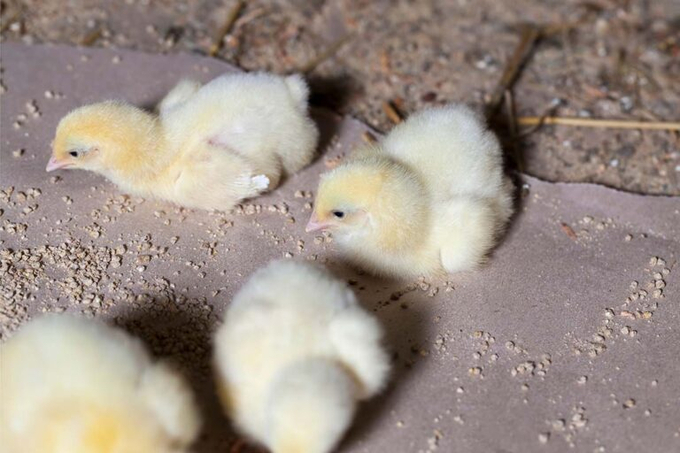June 15, 2025 | 15:07 GMT +7
June 15, 2025 | 15:07 GMT +7
Hotline: 0913.378.918
June 15, 2025 | 15:07 GMT +7
Hotline: 0913.378.918

By 2030, it is expected that Russian genetics could represent 25% of the country's poultry meat production. Photo: Canva
The construction of the new complex in the Chelyabinsk Oblast has already started, the Russian Agricultural Ministry said in a statement in February. The 3.5 billion rouble (US$32 million) project is carried out by private Russian agricultural firm Sitno in cooperation with scientists from All-Russian Research and Technological Institute of Poultry Farming, engaged in developing the new crossbreed.
The facility designed to breed 1 million chicks of parent flock per year is due to release the first marketable products in 2025, the Ministry indicated.
Smena 9 is the first domestic crossbreed developed in Russia since the Soviet times. It was registered for commercial use in 2020, though the field trials of its productivity are still ongoing.
By 2030, Russian genetics should represent 25% of the country’s poultry meat production, Dmitry Patrushev, the Russian agricultural minister, unveiled during an industry conference in early February. The first Smena 9 genetic centre was put into operation in the Moscow Oblast at the end of 2023 with a goal to facilitate import-replacement in this field, he emphasised.
The investment cost of the facility was 5 billion roubles (US$48 million).
These efforts are generally in line with the Russian government’s campaign to move the meat and dairy industry from the import needle. Russia has established its breeding base on 13 species of farmed animals. The authorities also work on the information and analytical system to facilitate this process.
According to Patrushev, this system is due to begin operation in 2026, though he has not provided additional details about its features.
Russian genetics account for only 5% of the poultry production in the country, estimated Konstantin Korneev, executive director of Rincon Management, a Moscow-based consultancy. The goal set by the government is reachable, providing that the sufficient inflow of investments in the sector is secured, Korneev told local publication Agroinvestor.
Korneev added that expanding Smena 9 production “is not about improving productivity” since all crossbreeds have almost the same efficiency parameters. The key rationale behind the project, he noted, is to lower dependence on imports.
The prospects of developing Russian poultry genetics also largely rely on export opportunities, Korneev said, expressing confidence that Russian genetics centres will undoubtedly try to promote Smena crossbreed among foreign customers.
(PW)

(VAN) Extensive licensing requirements raise concerns about intellectual property theft.

(VAN) As of Friday, a salmonella outbreak linked to a California egg producer had sickened at least 79 people. Of the infected people, 21 hospitalizations were reported, U.S. health officials said.

(VAN) With the war ongoing, many Ukrainian farmers and rural farming families face limited access to their land due to mines and lack the financial resources to purchase needed agricultural inputs.

(VAN) Vikas Rambal has quietly built a $5 billion business empire in manufacturing, property and solar, and catapulted onto the Rich List.

(VAN) Available cropland now at less than five percent, according to latest geospatial assessment from FAO and UNOSAT.

(VAN) Alt Carbon has raised $12 million in a seed round as it plans to scale its carbon dioxide removal work in the South Asian nation.

(VAN) Attempts to bring down the price of the Japanese staple have had little effect amid a cost-of-living crisis.